The restrictions differentiated by county will end, the hours for commerce, restaurants and shows will be eliminated, and may work until 2:00 am, the curfew disappears throughout the country. These are, in short, the main measures of deconfinement that have just been announced by Prime Minister António Costa, at the end of yet another long Council of Ministers. The measures will come into effect next Sunday, August 1st.
António Costa announced three phases for what he considered “the liberation of society and the economy”.
In phase 1, which starts next Sunday, there will be three general rules, to be applied throughout the country. The first rule is the end of the application of "differentiated measures in each municipality", now having "national measures". And what are the reasons for this change? The “vaccination rate [is] homogeneous throughout the territory”, the Delta variant is the “predominant” at national level and, on the 1st, “a period of great inter-municipal and inter-regional mobility” begins. In other words, due to the holidays, “it would make little sense to maintain the differentiation in terms of municipalities”.
The second rule announced by the Prime Minister has to do with the "elimination of schedules for activities", with commerce, restaurants and shows returning to normal hours, only with the limitation of having to close at 2:00 am and complying with the rules of the DGS (use of mask, distance, capacity, etc).
The third general rule is the "intensive use of the digital certificate or negative test", which will be a condition for air or sea travel, access to tourist establishments and local accommodation, inland restaurants on weekends and holidays, which are " traditionally the moments of greatest interaction and greatest risk».
Certificates and tests will also be essential in «gyms, for group classes, spas and spas, casinos and bingos, cultural, sporting or corporate events with more than 1000 people (in an open environment) or 500 people (in a closed environment), weddings and baptized with more than 10 people».
In this phase 1, as of August 1, the “hour restriction for circulation on public roads” also ends, in other words, the mandatory curfew.
On the other hand, added António Costa, sporting events may have a public, "with rules to be defined by the DGS", "cultural shows will have a capacity of 66%", weddings and baptisms will have a "capacity of 50%", while entertainment equipment (carousels, etc.) may work "according to the rules of the DGS, in a place authorized by the municipality". In addition, "telework goes from mandatory to recommended, when activities allow".
However, in this initial phase, bars and clubs remain closed, as well as “parties, pilgrimages and other festivities” are prohibited, as they attract crowds.
In phase 2, which will start, if all goes well, at the beginning of September, the obligation to wear masks on public streets ends, weddings and baptisms will have a capacity of 75%, the same for cultural shows. On that date, public transport will no longer have a capacity limit, while public services will operate without prior appointment».
The last phase will be reached when 85% of the Portuguese population is fully vaccinated, which António Costa estimated, based on the scientists' indications, could take place in October. Only then will bars and clubs reopen, where you can enter with a digital certificate or a negative test, the restaurants will no longer have a maximum limit of people per group, which is expected. in fact, that all the capacity limits expire.
At the beginning of his speech, the Head of Government had given the framework for the decision-making announced today. Thus, he recalled, "between 9 March and mid-June, we increased the rate of transmission, but we managed to keep incidence rates low and even decreasing."
Then, «as a result of the impact of the Delta variant, we began to have a very accentuated increase in incidence, first only in Lisbon, then in the rest of the country. This led us to adopt restrictive measures, first in Lisbon, then in the rest of the country», he recalled.
Partly thanks to these measures, currently the Rt is already below 1 nationally, having decreased in recent weeks. This decrease was reflected “in the incidence rate at 7 days, which has been declining successively until today”.
António Costa added that, for this "success", the "acceleration of the vaccination process" contributed. In such a way that, he stressed, «Portugal currently has a vaccination rate per 100 inhabitants higher than the European Union average».
"If we compare the current wave with the one at the beginning of January, we see the following: although the current variant is more transmissible than the previous one, the previous one led to much higher incidence rates than this one has led us to." The numbers are even "more impressive if we compare admissions, or even if we compare admissions to the ICU and the huge difference in the number of deaths," he explained. "This means that vaccination has made a very positive contribution", despite the predominant Delta variant being "more transmissible".
Taking all these data into account, the prime minister said that "the time has come for us to start managing the pandemic based on a fundamental criterion, which is the rate of vaccination."
The forecast is that, on Sunday, August 1st, «57% of the Portuguese population will be fully vaccinated» and that «we will reach 70% of complete vaccination by the beginning of September», while in October «85%» of people will have your complete vaccination.
In spite of all these measures announced to foresee the light at the end of the tunnel, the head of the Government left a warning: "We will not hesitate in stopping or retreating in function of the evolution of the pandemic".
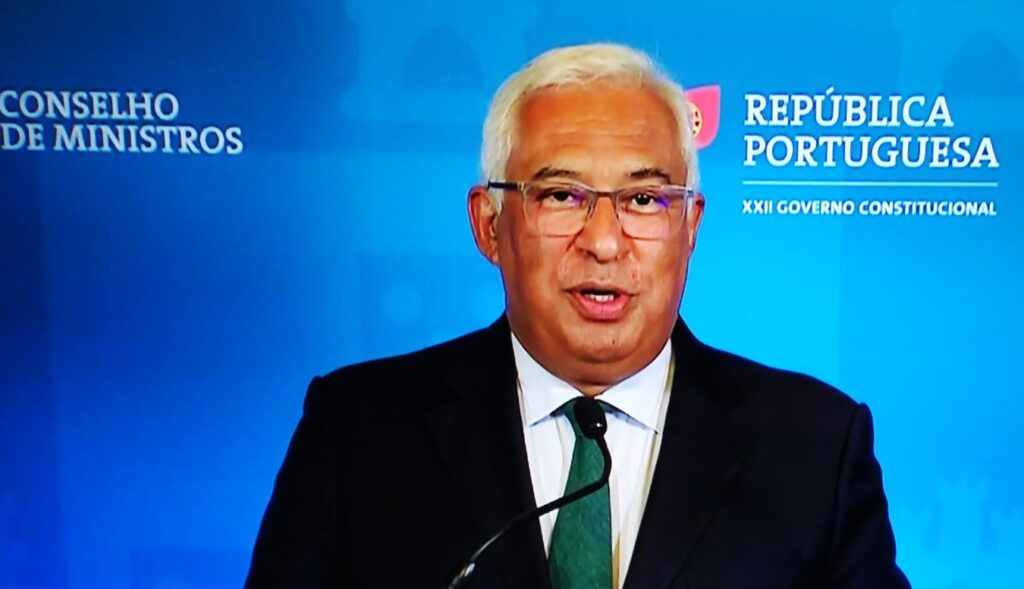
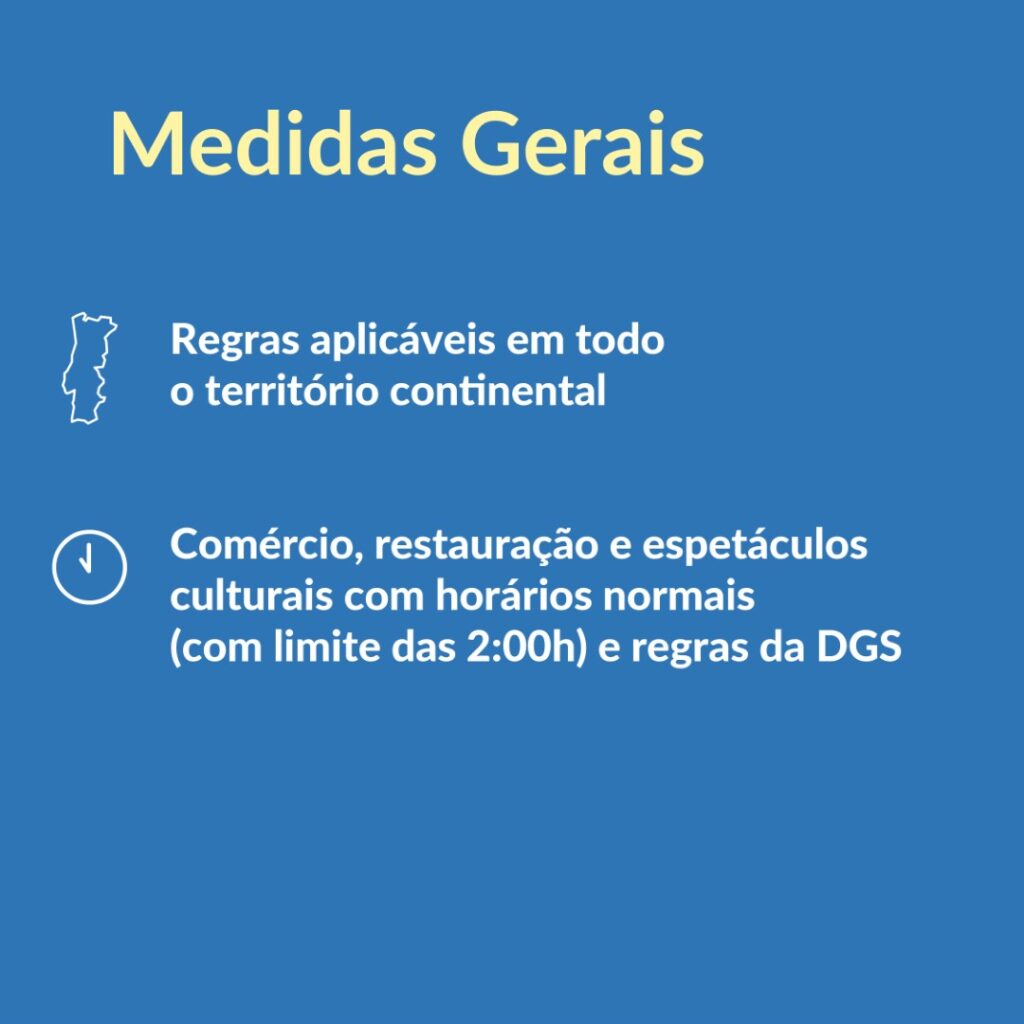
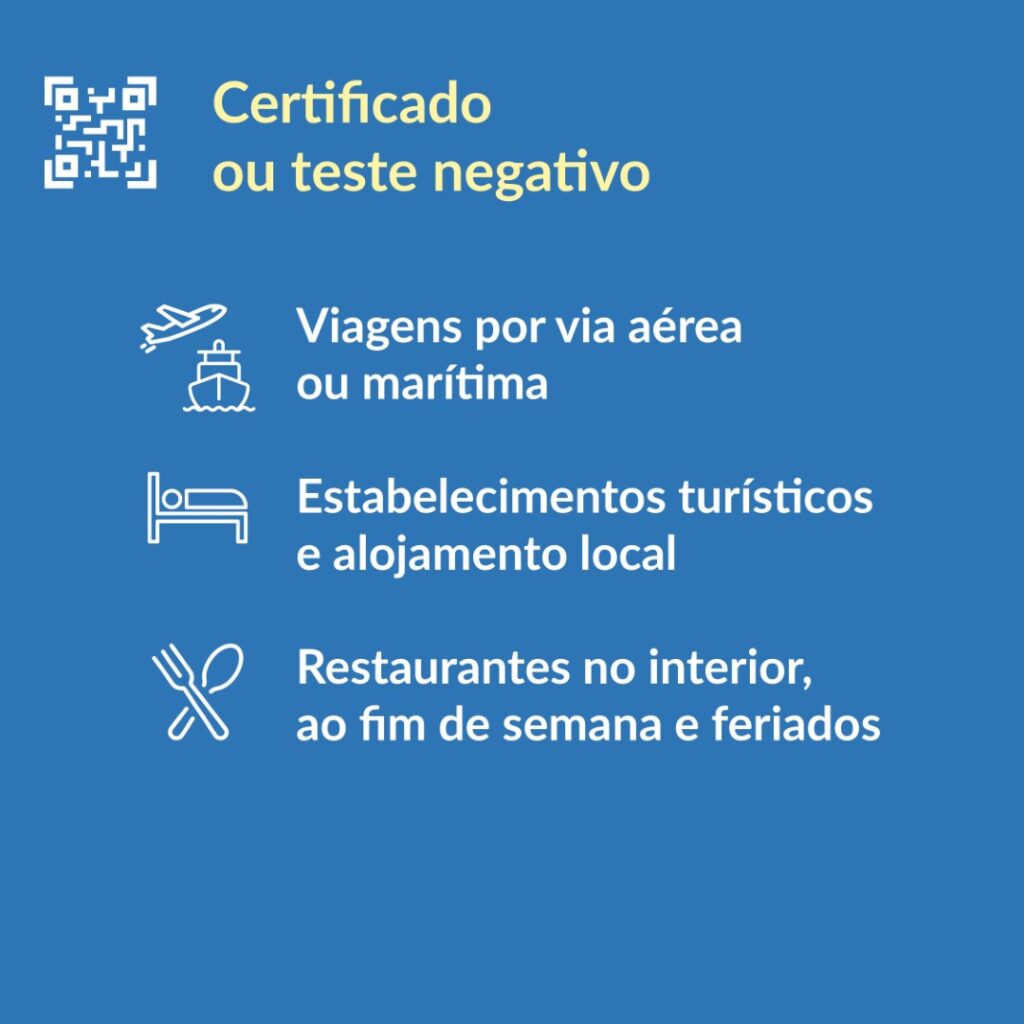
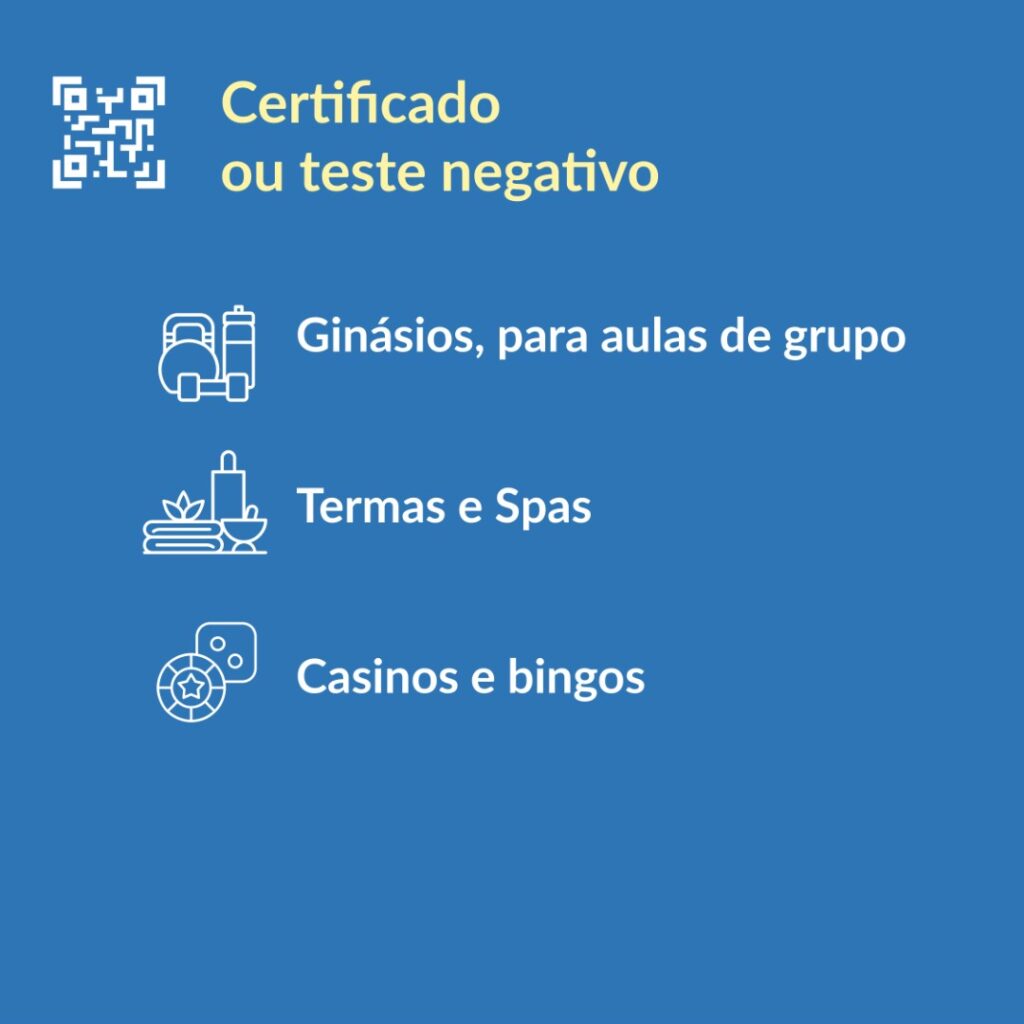
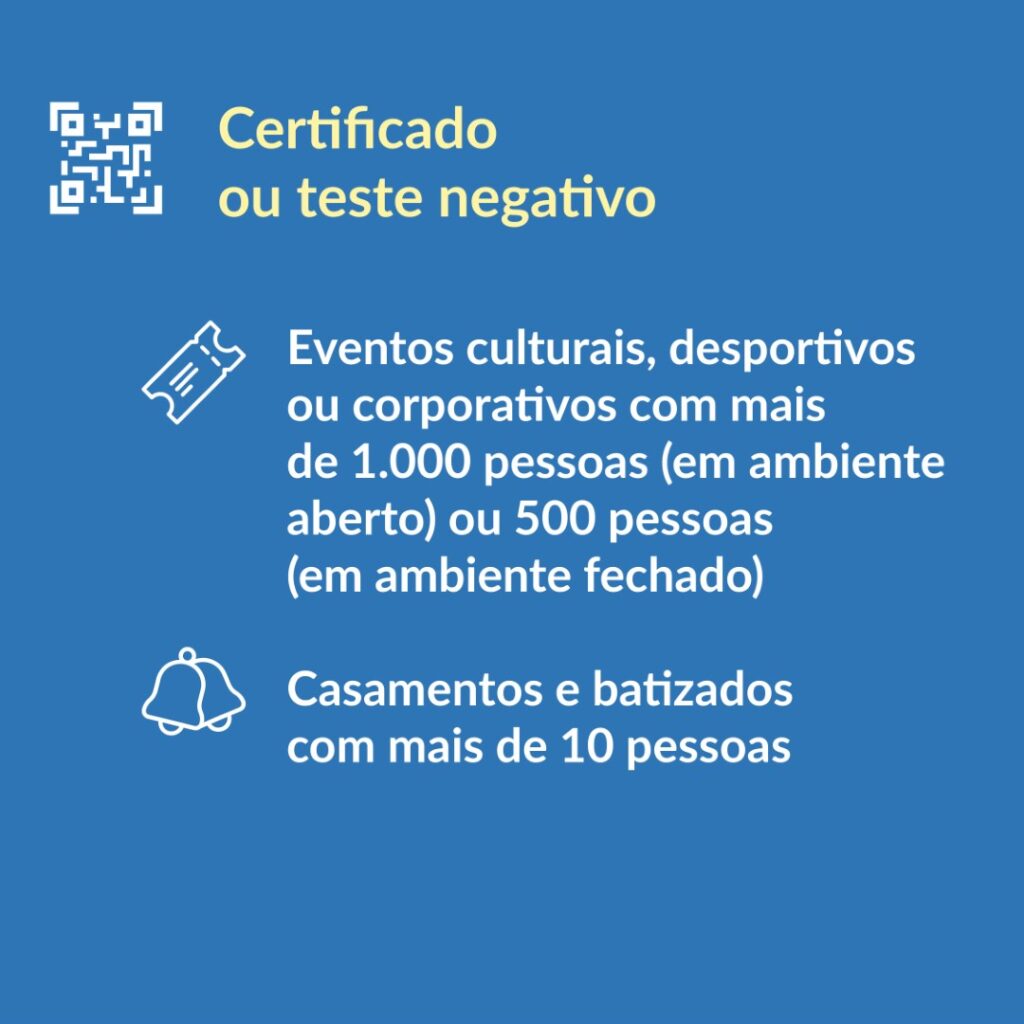
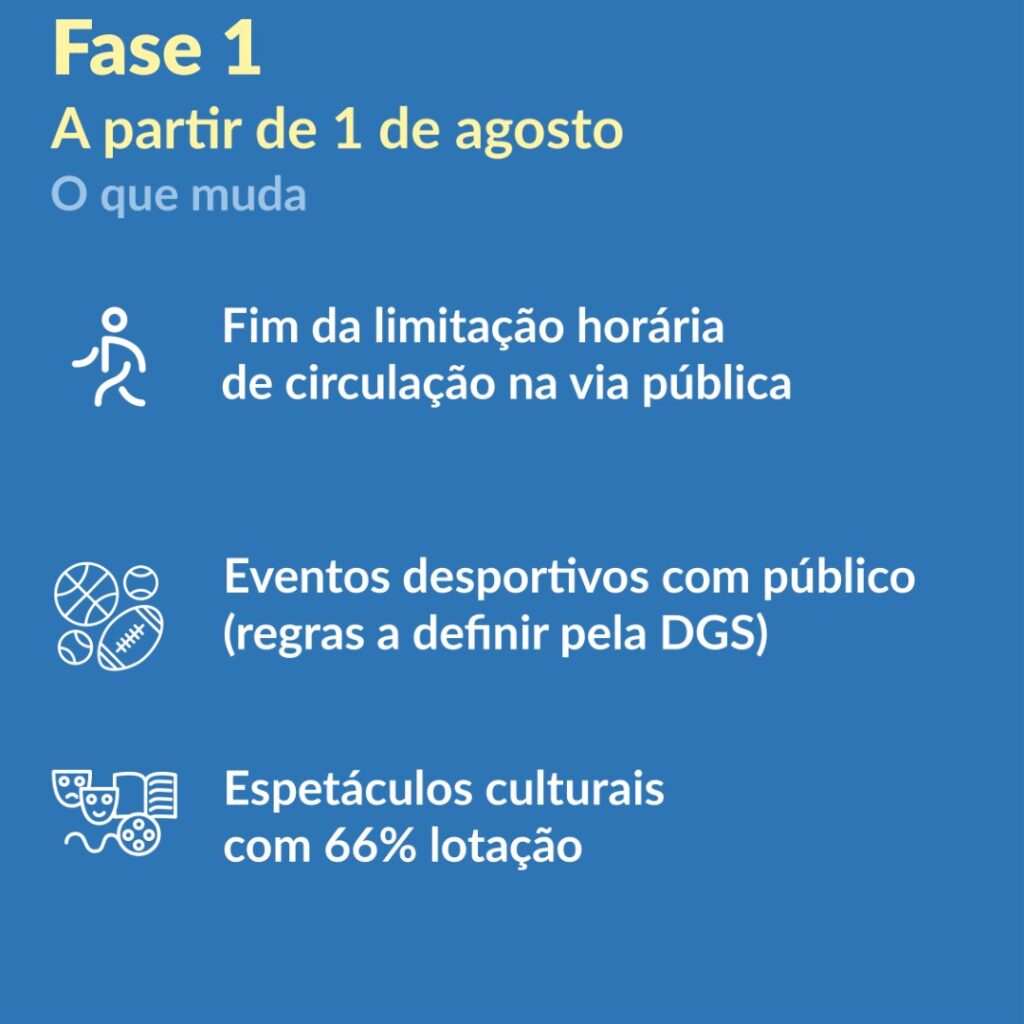
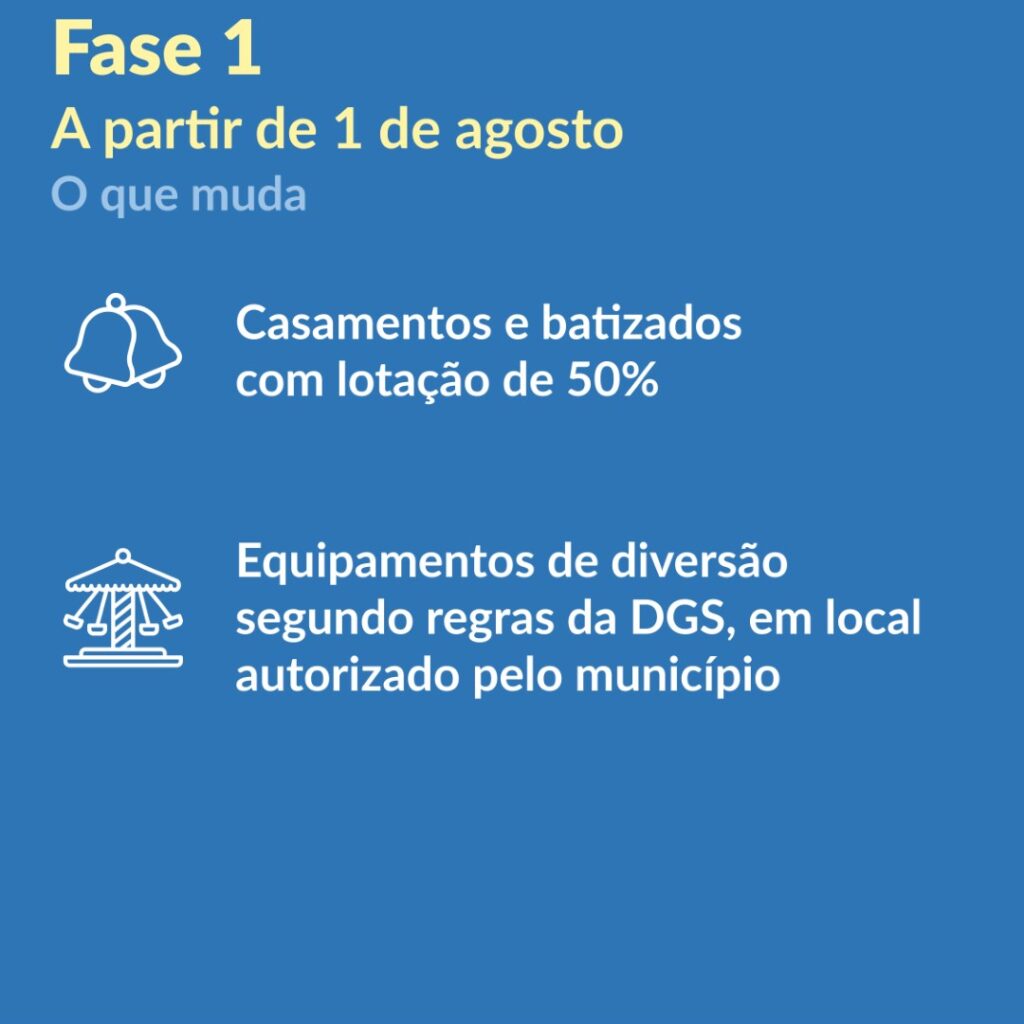
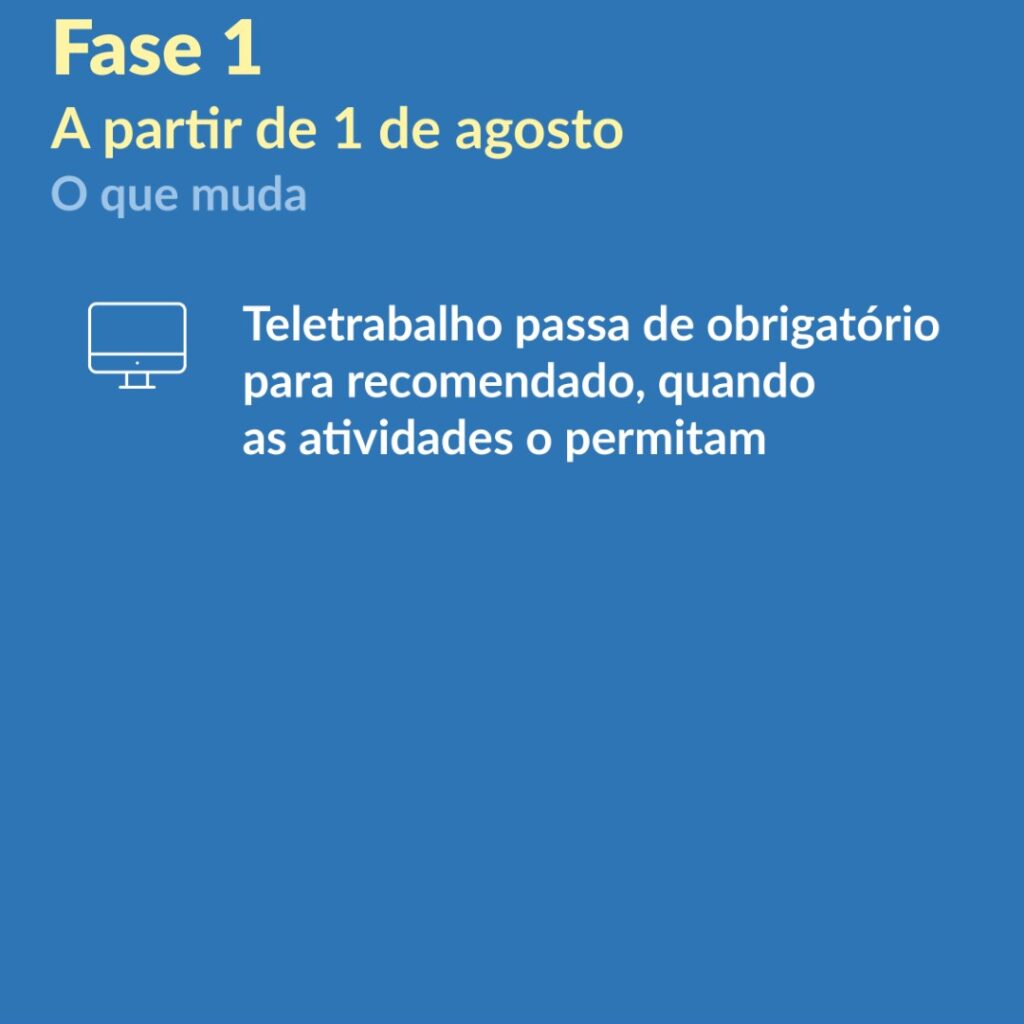
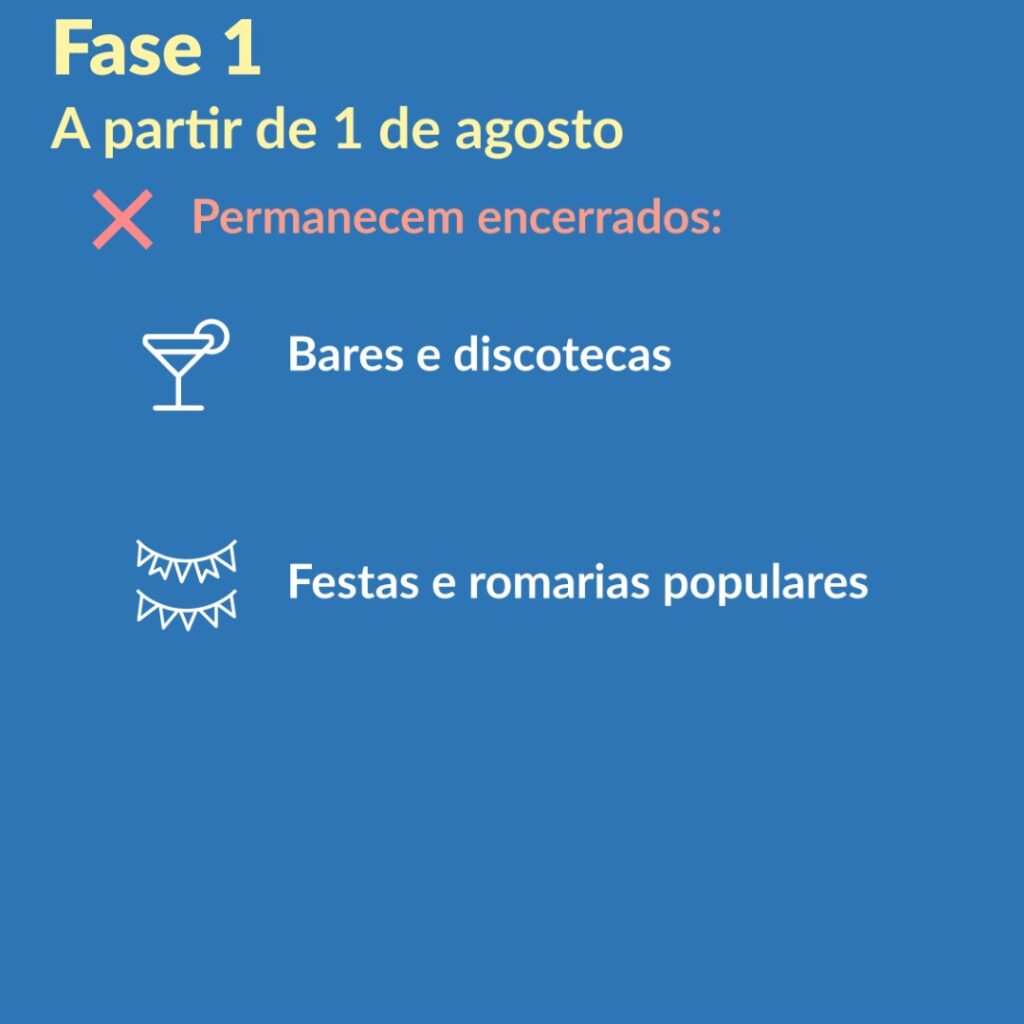
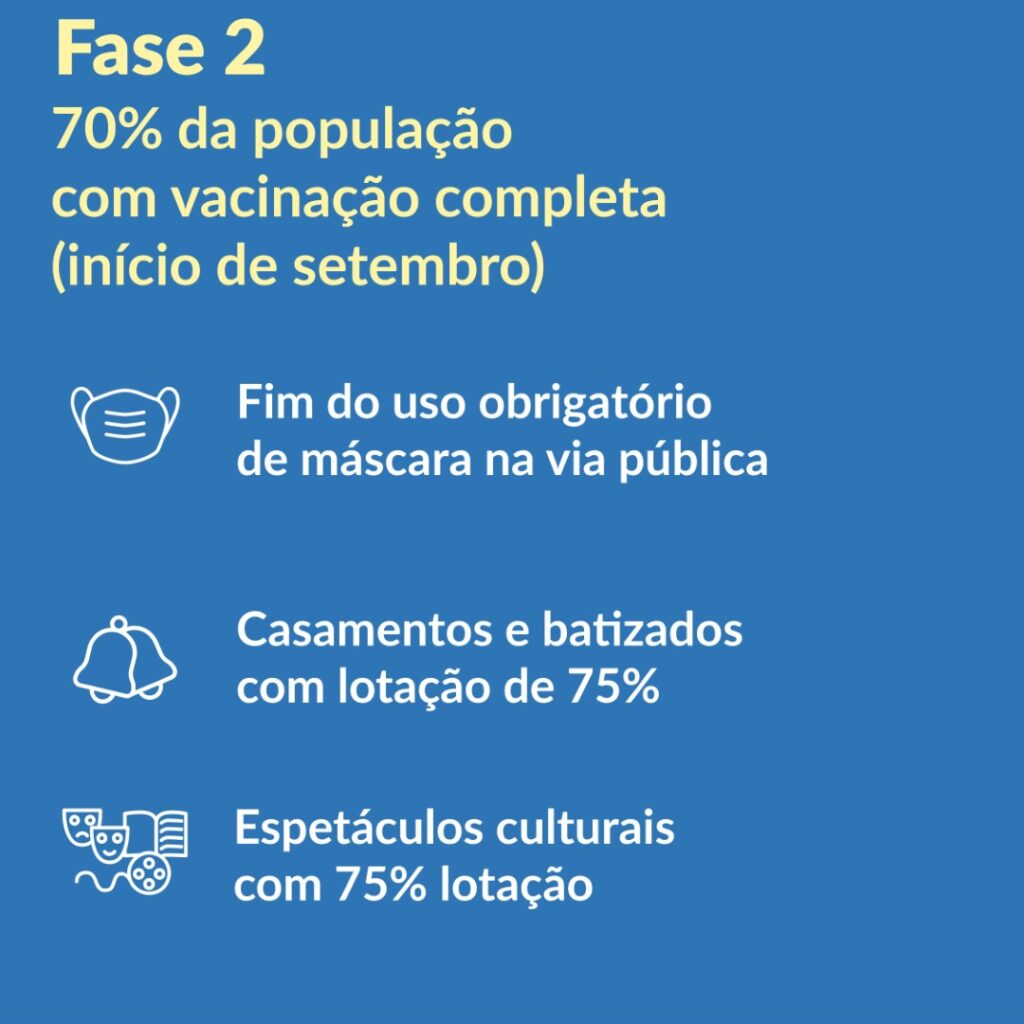
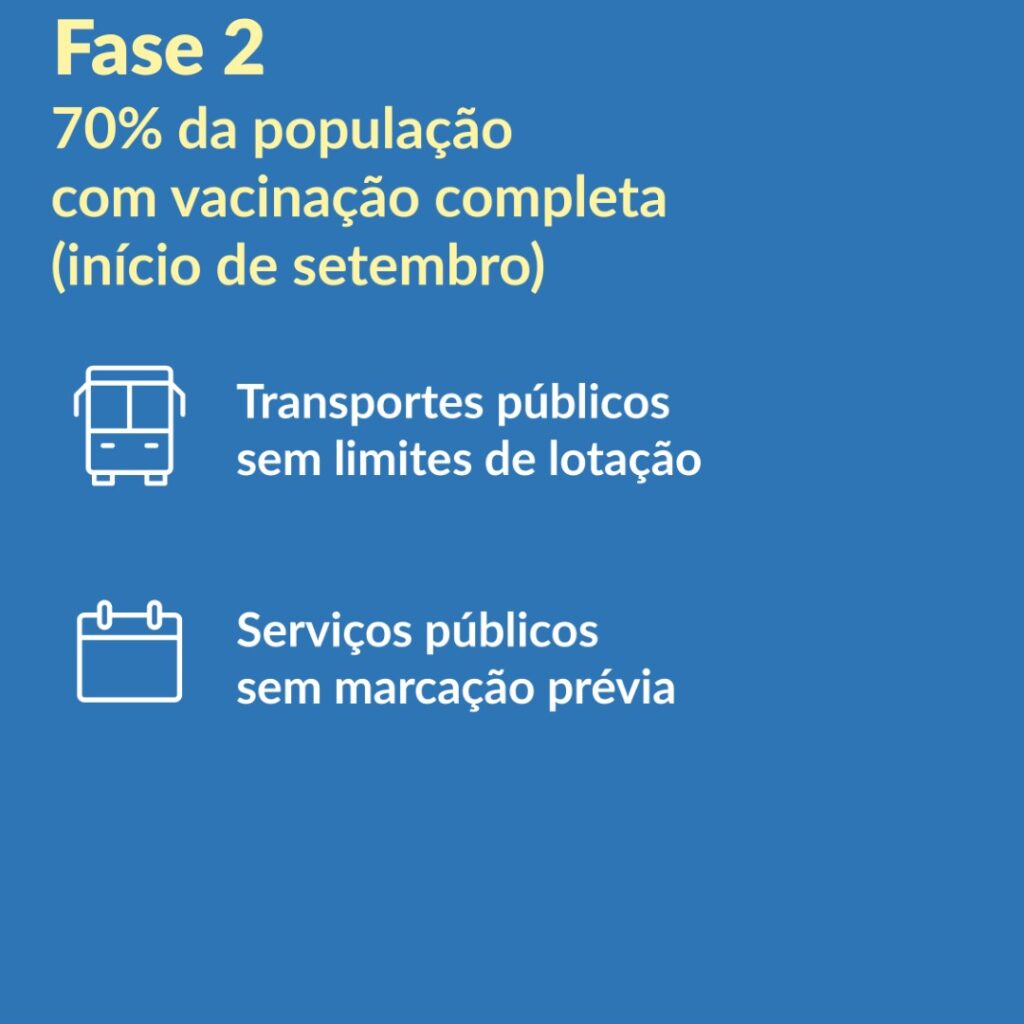
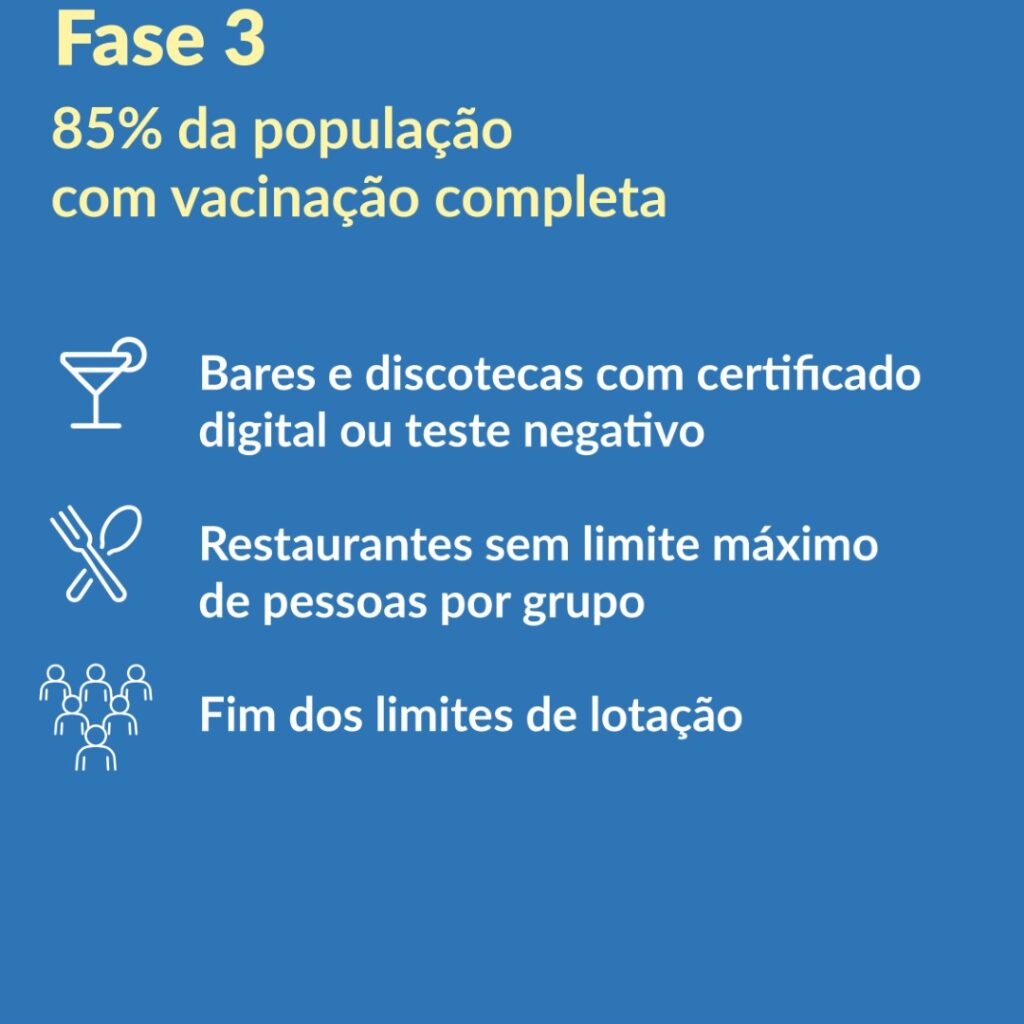



















Comments